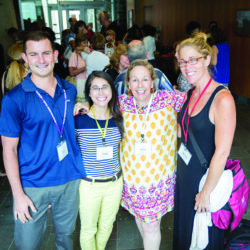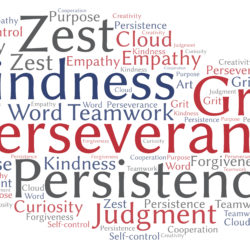By Pamela Kwartler, MA, IECA (NJ)
“There is a mismatch in talent pool and market demand, both currently and in the future. Though academic research often leads business, what’s taught in business courses is generally at least five to ten years behind the business sector.” Those words from economist and business leader Tess Mateo, managing director and founder of CXCatalysts, drive home an important point for IECs: what students learn in today’s business classes will not be enough. We must understand the world our students will graduate into to help them make choices that will propel them forward. Students and families who go on autopilot and reach for a career with a seemingly high ROI today may be surprised by the outcomes. The fact is that none of the fields we know will exist as they are today in the future.
In January 2016, the World Economic Forum introduced leaders of industry, governments, and civil society to the “fourth industrial revolution,” (see www.weforum.org/centre-for-the-fourth-industrial-revolution for more information), a term that CEOs, policymakers, and industry now use to describe how emerging technologies, such as artificial intelligence, quantum computing, 3D printing, and the Internet of things, are converging with humans’ biological and physical lives. New technologies will increasingly do more, to the extent that traditionally economically rewarding positions, such as financial analysts, accountants, finance and medical professionals, and even lawyers will become “redundant, and therefore replaceable.” Many Wall Street traders have had to reinvent themselves because their jobs have also been eliminated by technology. Business is evolving more quickly than ever before: large corporations are being broken up as business units are broken into yet smaller companies. Even 50% of the world’s medical services are delivered electronically.
How do IECs help students prepare for new markets and future economic success when the rules have changed? We often observe that it is students—who they are and what they bring to the world—that matter more than where they earn their degrees. An elite education alone will not necessarily provide the answer.
Democratic presidential candidate Andrew Yang is a Brown-educated, former corporate lawyer, dot-com executive, and CEO of a GMAT test prep company: a symbol of the meritocracy. Today, he doesn’t believe it should be the job of our institutions “to train 80% of our graduates to do one of six things—financial services, management consulting, technology, law, medicine, or academia in New York, San Francisco, Boston, Chicago, Washington, DC, or Los Angeles.” Yang blames the meritocracy for blissfully ignoring the country’s economic crisis and failing to fix problems caused by manufacturing job losses in middle America. The problems that need solving are even bigger than that. Fortunately, so are the opportunities.
Although there is great focus on STEM these days, all majors will matter, and students can study at a wide range of colleges. In 2015, world leaders agreed on the world’s biggest problems, which are collectively referred to the Global Goals or the 2030 Sustainable Development Goals (SDGs). (More information is available at https://sustainabledevelopment.un.org/?menu=1300.) For example, consider that tackling the individual problems caused by climate change will create new jobs worldwide. Along with solutions developed by engineers and scientists, environmental studies majors can explore how indigenous people have farmed sustainably for centuries. The skill of diplomacy will be essential to work cross-culturally and make progress within the worldwide community. As the water table rises and the carbon footprint expands, innovation in agriculture will continue to be a priority. These 21st-century businesses, unlike those that have benefited a small sliver of the first world since the 1980s, will improve the quality of life for all. Deep, nuanced thinkers will need to parse and define the ethics of evolving business models and, hopefully, enforce ethical regulations.
What Can IECs Do?
• Learn more about the fourth industrial revolution so that you help your students explore industries with increasing opportunities. Start by reading more at www.cnbc.com/2019/01/16/fourth-industrial-revolution-explained-davos-2019.html.
• Get smart about SDGs—consider using the global goals as a roadmap, then ask your students which topics they are interested in helping solve. These are big problems that will be around for a lifetime. Discover what passions and skills might be useful—there is a demand for many skill sets. (See page two of the following link to see all the goals and share them with your students: www.undp.org/content/dam/undp/library/corporate/brochure/SDGs_Booklet_Web_En.pdf.)
• Ask students what they can do during high school to develop their interests. Can they travel to explore global problems or spearhead local programs that focus on any of the SDGs?
• Research which colleges are positioning themselves to participate in solutions. For example, developing sustainable food systems is a major global problem (SDG #12), and many college agriculture programs are well-positioned to innovate, including Cornell, Ohio State, Purdue, UMass Amherst, PSU, University of Delaware, the University of Arizona, and the University of Illinois Urbana–Champaign, offer options for many academic levels. Some other examples include Goal #16 Peace and Justice (diplomacy, political science, international relations), Goal #11 Sustainable Cities and Communities (urban planning, construction, real estate), or Goal #7 Affordable and Clean Energy (environmental or civil engineering).
We can guide our students toward fulfilling college experiences that incorporate research, productive study abroad programs, and internships that will lead to employment in fields that truly allow them to impact their world—and ours.
Pamela Kwartler, College Process Counseling, can be reached at [email protected].







